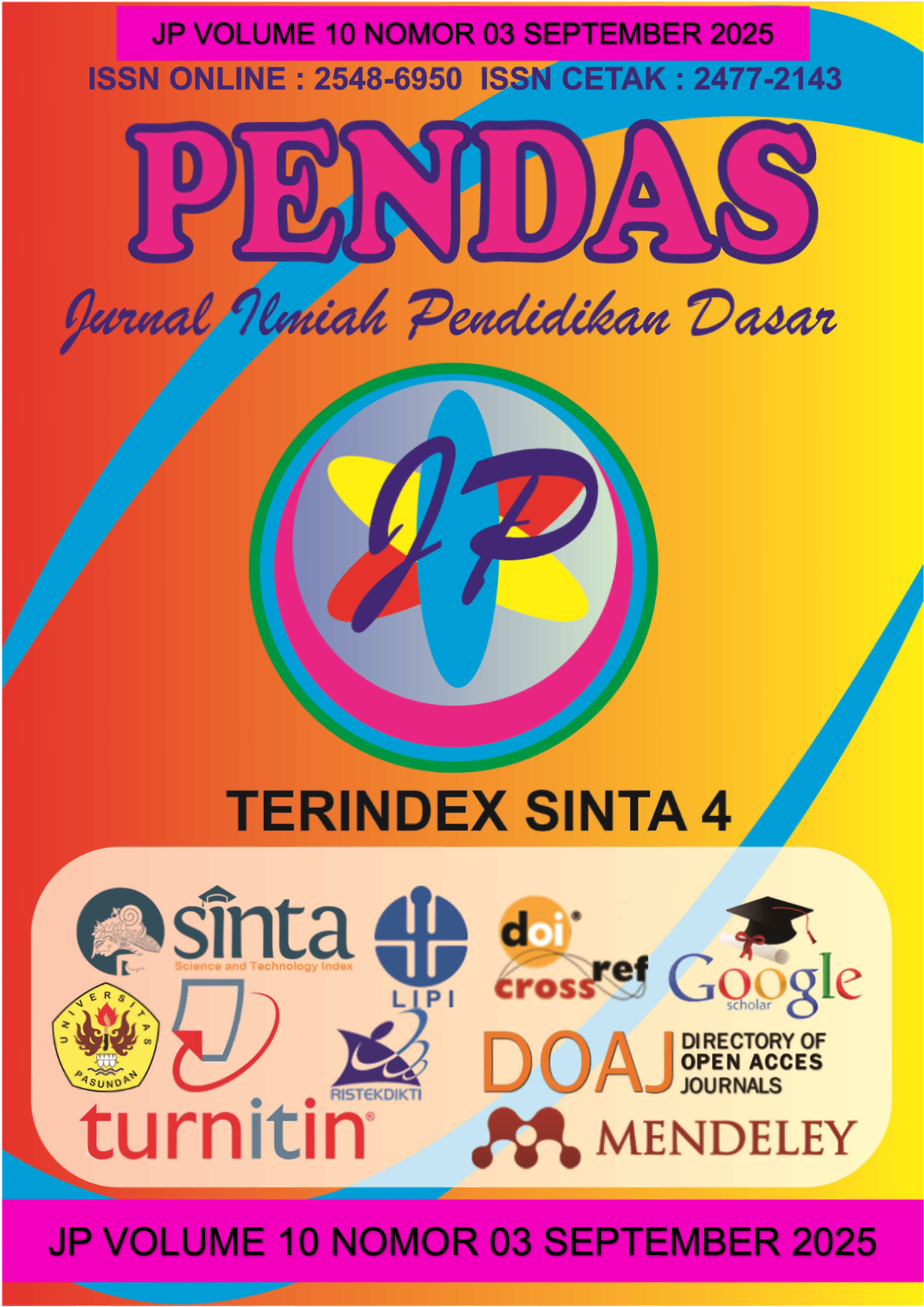PENGARUH PENDEKATAN ETNOPEDAGOGI TERHADAP PEMAHAMAN KONSEP DEMOKRASI SISWA KELAS V SDN 6 LABUHAN HAJI
DOI:
https://doi.org/10.23969/jp.v10i03.33366Keywords:
Ethnopedagogy, Democracy, Concept Understanding, Civic Education (PPKn).Abstract
This study aims to examine the influence of the ethnopedagogy approach on students’ understanding of the concept of democracy. Understanding the concept of democracy is an important part of Civic Education (PPKn), which plays a role in shaping the character of active, critical, and democratic citizens. Based on preliminary observations at SDN 6 Labuhan Haji, it was found that fifth-grade students still experienced difficulties in understanding democratic values such as deliberation, mutual cooperation, and respecting differences of opinion. This was indicated by low learning outcomes and limited student engagement in the learning process. The application of the ethnopedagogy approach, which connects democracy material with the local wisdom of the Sasak community such as the Banjar tradition, beriuk tinjal (mutual cooperation), and the culture of deliberation was carried out as an effort to improve students’ understanding. This research employed a quantitative method with an experimental type and a one-group pretest-posttest research design. Data collection techniques included observation, tests, interviews, and documentation. The research sample consisted of all fifth-grade students at SDN 6 Labuhan Haji, totaling 25 students. The results of the study show that: (1) the implementation of learning using the ethnopedagogy approach was carried out according to the planned stages, as evidenced by the increase in the average pretest score of 58 to a posttest average of 84, categorized as good; (2) there was a significant influence of the ethnopedagogy approach on students’ understanding of the concept of democracy, as indicated by an N-Gain score of 0.60 in the medium-to-high category and the results of the paired sample t-test showing a significance value of 0.000 < 0.05, thus Ha was accepted and Ho was rejected.
Downloads
References
Br Meliala, K. N., Sinaga, M., & Ndona, Y. (2023). Implementasi Nilai-Nilai Demokrasi Di Sekolah Sd Negeri 040508 Sarinembah Kabupaten Karo. Jurnal Handayani, 14(1), 39. https://doi.org/10.24114/jh.v14i1.45293
Lestari, W., Hasibuan, V. U., Lova, S. M., & Yani, F. (2021). Media Pembelajaran di Sekolah Dasar Berbasis Kearifan Lokal Hutan Mangrove. Edumaspul: Jurnal Pendidikan, 5(2), 865–871. https://doi.org/10.33487/edumaspul.v5i2.2580
Minarti, D., & Widodo, H. (2024). Peran Demokrasi Dalam Pendidikan Nilai dan Karakter Pelajar. Jurnal Pendidikan Bhinneka Tunggal IkaVol. 3No. 1Januari2025e-ISSN :2988-0440dan p-ISSN :2988-0491, Hal 174–181.
Nursima, I. (2020). Etnopedagogi di Sekolah Dasar.
Rahman, A., Munandar, S. A., Fitriani, A., Karlina, Y., & Yumriani. (2022). Pengertian Pendidikan, Ilmu Pendidikan dan Unsur-Unsur Pendidikan. Al Urwatul Wutsqa: Kajian Pendidikan Islam, 2(1), 1–8.
Sekarini, N. L. (2023). Implementasi Etnopedagogi Berbasis Kearifan Lokal dalam Pembelajaran Tematik di SD Negeri 1 Werdhi Agung.
Sugiyono, (2019). Metodologi Penelitian Kuantitatif dan Kualitatif dan R&D. Bandung: ALFABETA
Sugiyono, (2022). Metodologi Penelitian Kuantitatif dan Kualitatif dan R&D. Bandung: ALFABETA
Syahindra, O. M. D. (2019). Pengembangan Nilai-Nilai Demokrasi Di Sekolah.
Downloads
Published
Issue
Section
License
Copyright (c) 2025 Pendas : Jurnal Ilmiah Pendidikan Dasar

This work is licensed under a Creative Commons Attribution 4.0 International License.














































